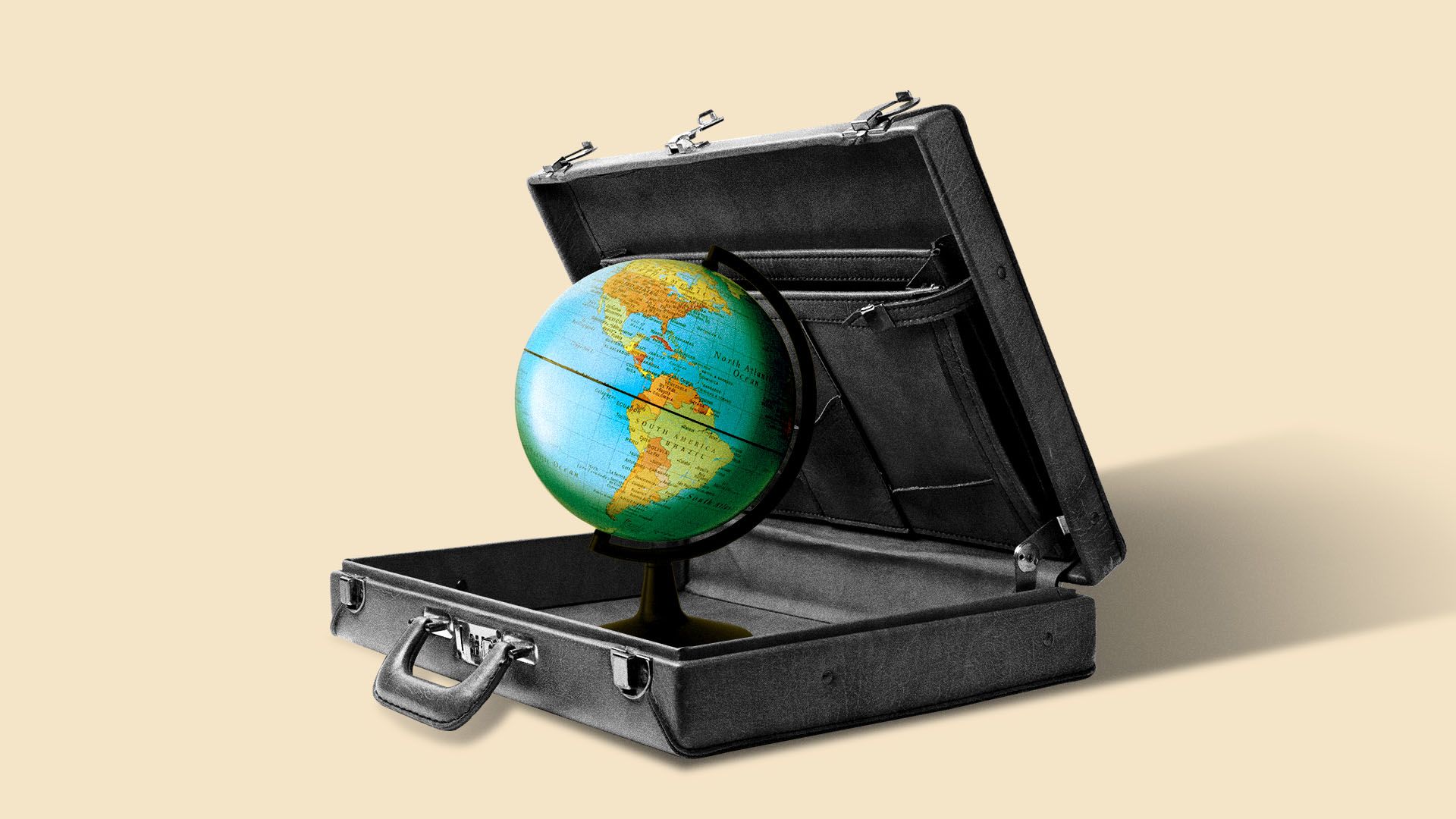CEOs' allergy to geopolitics
Add Axios as your preferred source to
see more of our stories on Google.

Illustration: Sarah Grillo/Axios
If CEOs are the new politicians, many of them don't seem to have thought carefully about foreign policy — particularly about working with autocratic regimes.
Why it matters: Corporate America continues to do business with the Saudi crown prince, Mohammad bin Salman, who allegedly oversaw the beheading of journalist Jamal Khashoggi, and to court business in places like China and Turkey.
American CEOs are increasingly stepping up to take positions on domestic issues like gun control, transgender rights and climate change. But when it comes to abuses that take place outside U.S. borders, they tend to fall silent — or say things they regret.
Driving the news: Uber CEO Dara Khosrowshahi took a social media beating yesterday, after telling "Axios on HBO" that the Khashoggi murder was "a mistake" and then compared it to Uber's self-driving accident in which a woman was killed. (He said after the interview that he regretted the comment.)
Khosrowshahi will talk more about his Saudi Arabia remarks to Axios at an all-hands meeting later this morning, according to a source familiar with the matter.
Uber is not alone in what looked like a soft shrug at the crime:
- After boycotting the Saudi regime's "Davos in the Desert" investment conference in 2018, shortly after the murder, many high-profile companies and CEOs fell in line and attended the event this year.
- While the Business Roundtable made a statement in August about the importance of social responsibility, its CEO members haven't tackled the knotty issue of profiting from business conducted in autocratic regimes.
- Noteworthy example: BlackRock CEO Larry Fink — who has taken big public stands on gun control and corporate social responsibility — has continued to do business in Saudi Arabia since the Khashoggi murder, saying in 2018 that "everyone has their own theories" about the murder.
There are exceptions:
- After Endeavor CEO Ari Emanuel returned $400 million of Saudi money in March, the possibility opened up that other companies would take a similar stance and treat Saudi Arabia in much the same way as they might treat a gun manufacturer.
- That hasn't happened.
Be smart: U.S. companies are still wary of taking a stand on international issues.
- The list of joint global coordinators for the upcoming trillion-dollar Saudi Aramco IPO includes all the big U.S. investment banks, among others.
- The banks — Morgan Stanley, Goldman Sachs, Citigroup, and HSBC (which all declined to comment to Axios on Monday), as well as Bank of America Merrill Lynch, JPMorgan, and Credit Suisse (which didn't respond to a request for comment) — all stand to make millions of dollars in fees when the Saudi state oil company goes public.
- While taking a moral stance may look good in the eyes of some customers and employees, CEOs ultimately have to consider business implications like their responsibility to shareholders and the potential actions of competitors.
The bottom line: There's a long tradition in America that "politics stops at the water's edge." Insofar as CEOs are the new politicians, they seem to have adopted the same principle.
- This is reinforced by a Trump White House that selectively refuses to take action or speak out against autocratic governments for human rights abuses, including the Khashoggi murder.
- As JPMorgan CEO Jamie Dimon told Axios last year, regarding Saudi Arabia: "We will abide by what the American government decides, not what JPMorgan decides."
Go deeper: Axios' Dan Primack wrote in October about how corporate America remains happy to do business with the Saudis.
MBS' big bet on getting away with murder
Scoop: The grandees headed to Saudi Arabia's "Davos in the Desert"


